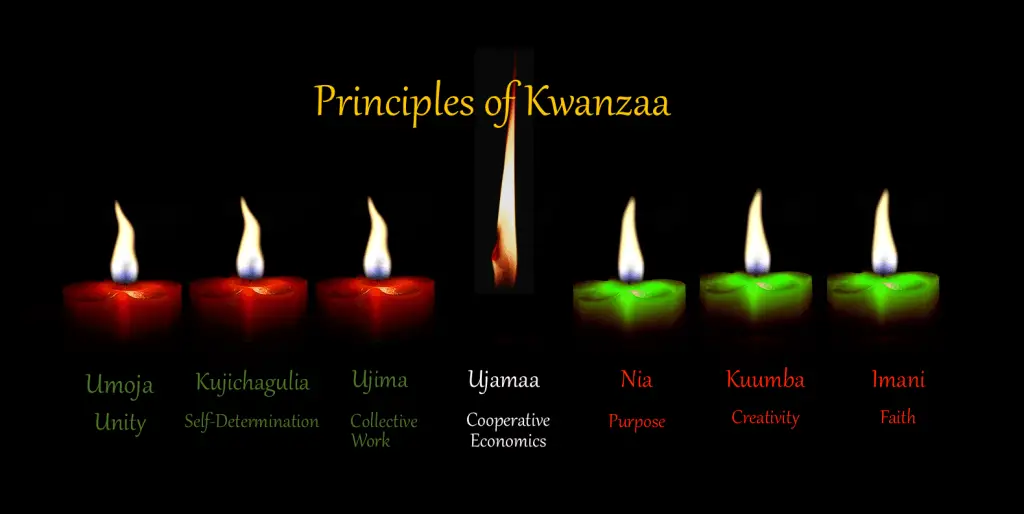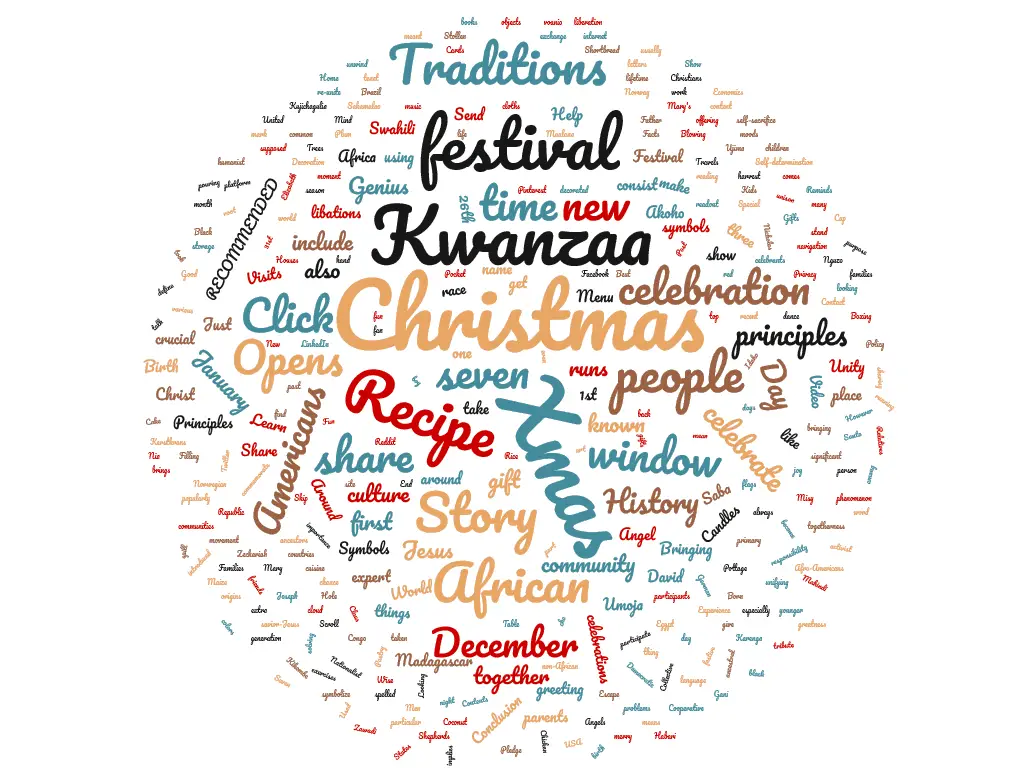The month of December, especially around Christmas time, is a time when many people are in celebration and festive moods. Families and friends re-unite to make merry and unwind.
The Christians find this time very crucial because they get to celebrate the birth of their savior-Jesus Christ.
On the other hand, the Afro-Americans in the United States take this time to mark the gift of life and their culture.
This festival is known as Kwanzaa, and it runs from 26th December to 1st January. Dr. Maulana Karenga, an activist, and humanist, is the one who introduced this festival.
From December 1966 to January 1967 is when the celebration took place for the first time.
The word ‘Kwanzaa’ comes from the Swahili language, and it means ‘first.’ The name has an extra ‘a’ to symbolize the seven principles of the festival.
The purpose of the celebration is to give a platform for offering the first harvest. It also brings African Americans together to celebrate their culture.
A movement known as the Black Nationalist is the root of this festival.
Principles of Kwanzaa
Just like the name ‘Kwanzaa’ is spelled using seven letters, so does the celebration consist of seven principles which are popularly known as Nguzo Saba.
The festival runs for seven days, which implies that each day is meant to celebrate a particular tenet of the festival.

The principles consist of a common phenomenon among people, and they include:
- Unity (Umoja) – Bringing people together and unifying them in families, communities, and race.
- Self-determination (Kujichagulia) – The African Americans are supposed to define and stand up for themselves.
- Collective work and responsibility (Ujima) – Bringing togetherness and solving problems in unison.
- Cooperative Economics (Ujamaa) – Creating businesses and profiting from them as a community.
- Purpose (Nia) – Developing the community to regain the greatness of the people.
- Creativity (Kuumba) – Striving to make the community better than before.
- Faith (Imani) – Fully believe in people such as leaders, teachers and parents and victory after suffering.
Symbols of Kwanzaa
Several symbols indicate the celebration of this festival, and they include;
- Crops (Mazao) – show that African Americans have been in Agriculture for long and their collective labor has paid off.
- Mat (Mkeka) – Holds the other symbols.
- Candleholder (Kinara) – Reminds the people of their ancestral origins.
- Maize (Mahindi) – Symbolizes the younger generation.
- Gifts (Zawadi) – Show the self-sacrifice of the parents to their children.
- Unity Cup (Kikombe cha Umoja) – Used to spill tribute to the ancestors.
- Seven candles (Mishumaa Saba) – They represent the seven principles of the festival. They also show the seven colors of Africa liberation movements’ flags which are three green, three red, and one black.
During these celebrations, the standard greeting is ‘Habari Gani,’ a Swahili greeting which translates to ‘how are you?’
Some of the exercises that take place during this time include the pouring of libations, music, and dance. The African Pledge is also readout and sharing of libations by the celebrants.
Just like in any other celebration, there is an exchange of gifts. Houses of the participants are decorated using art objects and African cloths.
In the recent past, even non-African Americans have taken part in the celebrations of Kwanzaa.
On the night of 31st December, those who participate in the festival get a chance of having cuisine from various African countries.
Learn More With the Help of Video
Main Points About Kwanzaa
- Kwanzaa is a week-long annual celebration for the African American people. It is mostly celebrated in the United States of America.
- It was created by Maulana Karenga and was first celebrated in 1966. The celebration begins on 26th December and ends on the 1st of January.
- The word Kwanzaa is from the Swahili phrase ‘matunda ya kwanza’ meaning ‘first fruits’.
- During the festival, seven candles (three red candles, one black candle, and 3 green candles) are lit one after the other.
- The seven candles and days are symbolic of the seven Kwanzaa principles: unity, self-determination, collective work and responsibility, cooperative economics, purpose, and faith.
Conclusion
It is always joy and fun during the Christmas season all around the world. However, for African Americans, it is a very crucial moment for them to celebrate Kwanzaa.
The festival is significant and runs from 26th December to 1st January. Its primary importance is bringing the people of this race together to commemorate their culture.
Word Cloud for Kwanzaa
The following is a collection of the most used terms in this article on Kwanzaa. This should help in recalling related terms as used in this article at a later stage for you.




